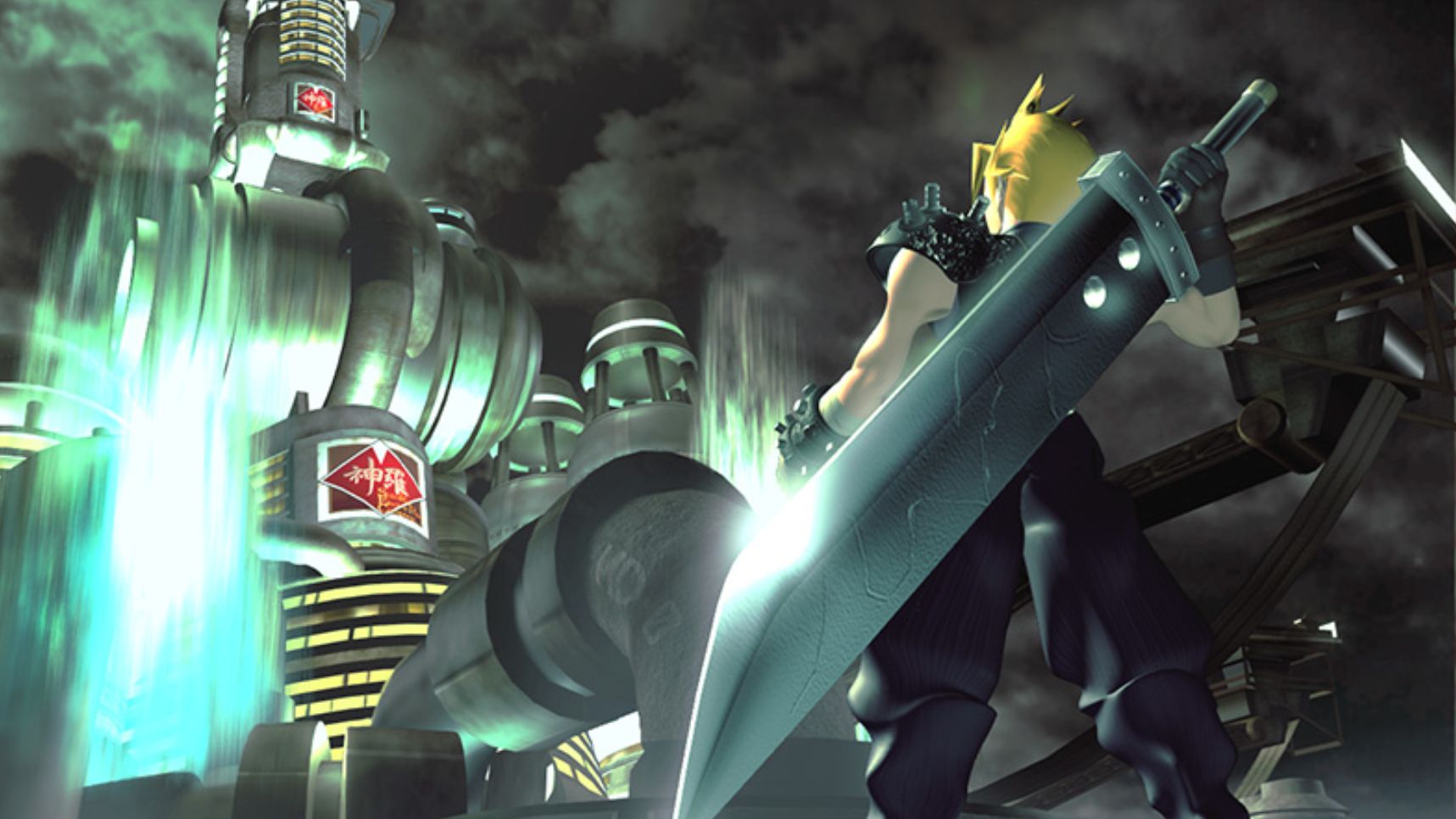Square Enix goes full Shinra with Final Fantasy 7 NFTs
Nice effort Avalanche, but screw you.

Final Fantasy 7 is a remarkable game for many reasons, not the least of which is the game's big theme of environmental destruction. It uses the wibbly-wobbly Lifestream conceit sure, but from that rollicking opening sequence this is the story of eco-warriors taking on the evil and planet-destroying megacorporation Shinra. I'm not sure that Final Fantasy 7's original developers could have imagined that, 26 years after release, the game's parent company would be the one shilling energy-wasting junk off its back.
The irony-free zone that is Square Enix has announced a set of Final Fantasy 7 trading cards that incorporate NFTs (thanks, VGC). The collection of 207 cards is called Final Fantasy VII Anniversary Art Museum: Digital Card Plus, and are being sold in packs of six physical cards which also contain one digital exchange card. The latter can be redeemed for an NFT version of one of the 207 physical cards on the Enjin NFT platform (which means users will need to create an Enjin wallet).
Curiously enough, part of the NFT pitch has always been that, due to their 'unique' status, their value can appreciate and holders can freely sell their NFTs: But not here. Square Enix says users can acquire as many of these Final Fantasy 7 NFT cards as they like, but there's currently no mechanism for selling or transferring them. In fact, these so-called NFTs seem to lack almost all of the functionality that NFT fans would normally take for granted.
First of all, you don't really own the card. Obviously no-one would think that buying a digital card of Cloud Strife would mean you own the copyright to that image, but you might think you would be able to do what you like with the NFT you paid for. All rights to it remain with Square Enix and "it is prohibited to copy, process, distribute, republish, etc. the digital card without our prior consent, regardless of whether it is for profit, non-profit, individual, organization, or company," with the only exemption being for private use.
"Digital cards are currently not compatible with marketplaces and cannot be transferred or resold to a third party," says Square Enix, though they can be exchanged on the Enjin Wallet app. Amazingly enough, for a company that keeps on saying how all-in it is on NFTs, Square Enix goes on to say it's not responsible for the Enjin platform and "with the termination of the service, it is possible that you will not be able to view or use the digital card in the future."
Don't all rush at once. The official site for all this nonsense shows that the artworks are familiar pieces any fan will have seen before, from both the original FF7 and the more recent remake, and they go on-sale March 31 for 440 yen a pack ($3.30 / £2.70). The announcement also comes with a short explainer video about how to enjoy your digital cards, which might be the most joyless thing I've ever seen.
今週末発売「デジタルカード」としても楽しめる「FF VII アニバーサリー アートミュージアム デジタルカードプラス」いつでもスマフォやPCでデジタルカードを収集・鑑賞することができます。デジタルカードの引換方法をご紹介※1パックにつき1枚のデジタル引換カードが同封https://t.co/CiAKghBves pic.twitter.com/oQn1lU9rNBMarch 28, 2023
This isn't even the first time with Final Fantasy 7: Square Enix announced a Cloud action figure with the Digital Plus Edition branding last year, which came with an NFT of the figure and all the same caveats that apply to these cards.
The biggest gaming news, reviews and hardware deals
Keep up to date with the most important stories and the best deals, as picked by the PC Gamer team.
I suppose you can at least argue that these NFTs, or digital collectibles, or whatever you want to call them, are more like pack-in bonuses for fans buying a physical product. The internet may have thought we'd chased them away from games: But maybe NFTs really are here to stay. Where's a well-meaning anti-corporate bunch of heroes when you need them, eh?

Rich is a games journalist with 15 years' experience, beginning his career on Edge magazine before working for a wide range of outlets, including Ars Technica, Eurogamer, GamesRadar+, Gamespot, the Guardian, IGN, the New Statesman, Polygon, and Vice. He was the editor of Kotaku UK, the UK arm of Kotaku, for three years before joining PC Gamer. He is the author of a Brief History of Video Games, a full history of the medium, which the Midwest Book Review described as "[a] must-read for serious minded game historians and curious video game connoisseurs alike."

